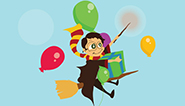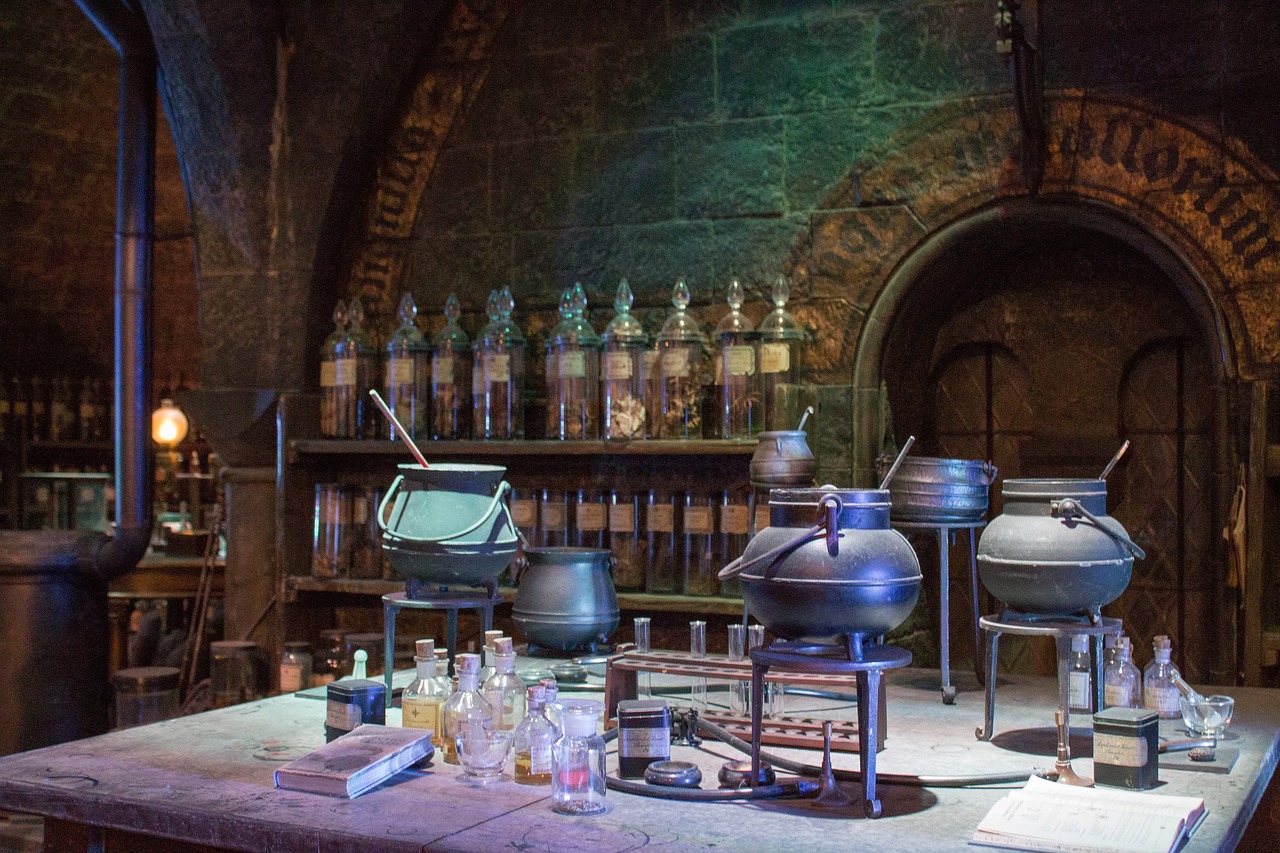Part of the popularity of Harry Potter for kids and adults alike is the magical otherworld it opens up to us. The idea of casting a spell so that good may triumph over evil; using divination to glimpse into the future; or having the chance of one more conversation with a deceased loved one is all very appealing. Yet in our modern and rational world there’s little room for mysticism, wonder and alternative worldviews.
‘There’s no such thing as magic!’ shrieks Uncle Vernon to Harry in his cupboard under the stairs. This is a world of Privet Drives, Aunt Petunias, and muggle mundanity, conquered by scientific reason and logic. The result - according to social theorist Max Weber - has been to trap us in the ‘iron cage of modernity’; stripped of magic and superstition we are prevented from contemplating what might lie beyond this lacklustre façade. For the rational minded, just as for Uncle Vernon, the world experienced by Harry, Hermione and Ron is kept firmly at arm's length, presented as completely unachievable and an impossible fiction in our disenchanted muggle world.
Yet as Harry discovered when he escaped his own peculiar iron cage, magic had always been around him. And although it may not come with giants, Polyjuice potion and invisibility cloaks, our world is not too dissimilar. With Britain’s pagan roots, magic has never been too far away if - as Hagrid tells Harry - ‘you know where to go’.
The modern world is in fact full of magic, divination and otherworldly figures. A whole range of alternative spiritualities, occult practices and paranormal beliefs exist in modern Western society, which some may feel sit more comfortably inside the walls of Hogwarts than the muggle world we believe we live in. From city workers consulting the ‘Psychic Sisters’ in Selfridges in the hope of bettering their fortunes, to Buddhist monks blessing Leicester City on their rise to take the Premiership - the use of magic in many forms is all around us. Pagans cast spells, Spiritualists talk to the dead, and Tarot readers use the cards to prophesize. Although admittedly they’re more likely to look like Siobhan, Head of Accounts in the office, than Sybill Trelawney, Head of Divination at Hogwarts; less like Dumbledore the long-bearded wizard in his purple cloak, and more like Damian the hipster writer with waxed moustache and tweed coat.
Official census figures back this up. Between 2001 and 2011 the number of people registering as Pagan increased by 85%, many of whom – though not all – will own their own wand and be familiar with spell casting. The number of Spiritualists – who believe the human spirit lives on and can be communicated with through trained mediums - grew by 21%. Druids and Wiccans nearly doubled in number over the same period, and many of those will be just as conversant with the healing powers of plants as Professor Sprout and her students of Herbology.
The magic, however, stretches far beyond the census statistics to have wider economic, social and health implications. The NHS Trust Association’s website, designed for use by health service professionals, lists crystal healing, dowsing and flower therapy amongst the recommended complementary and alternative therapies available. Spiritual healing has been trialled in a major English hospital with positive outcomes for those living with chronic longterm conditions – intervention, perhaps, by some unseen magical force? The British Astrological and Psychic Society saw a dramatic increase in demands for readings following the banking crisis and credit crunch from 2008. It seems even bankers and accountants who usually put their faith in spreadsheets and complex formulas have been turning to divination for guidance.
Perhaps Hagrid is right after all. Magic is all around us. Even if it is slightly more mundane, less electrifying, and lacking its own official Ministry in our world! So, if you fancy talking to a ghost, but don’t want to hang around the girl’s bathroom to catch Moaning Myrtle, why not pop along to the nearest Spiritualist Church? Or if you feel the urge to master some spell-weaving, but can’t find your way to Diagon Alley, you might want to visit your local witchcraft shop. For beyond the iron cage there is another far more enchanted word where magic, witchcraft and the occult are part and parcel of everyday life. So if you’re seeking a little more magic in your life don’t, as Ron told Harry, ‘let the muggles get you down’; start thinking instead, like Ginny, that anything's possible if you've got enough nerve..!
More related content
 This article is part of our Harry Potter collection - a series of academic insights exploring some of the themes, interests and general wizardry in the novels written by J.K. Rowling.
This article is part of our Harry Potter collection - a series of academic insights exploring some of the themes, interests and general wizardry in the novels written by J.K. Rowling.
You can view our Happy Birthday Harry Potter! hub here to read all the articles. Mischief managed!




Rate and Review
Rate this article
Review this article
Log into OpenLearn to leave reviews and join in the conversation.
Article reviews